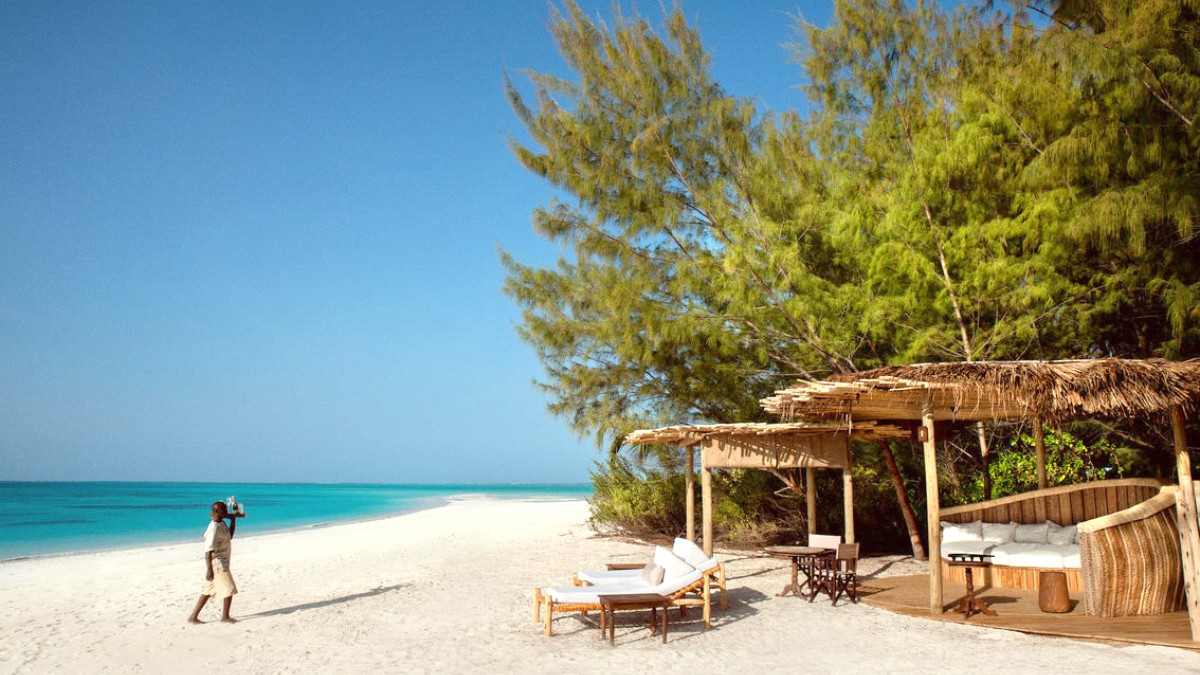
Tanzania
For the dry seasons (June-October, Jan-Feb), pack light dresses, shorts, skirts, and t-shirts for daytime wear. Evenings bring a slight drop in temperature, and mosquitoes become more active.
During the rainy seasons (March-May, Nov-Dec), you still need lightweight clothing. However, additional rain gear makes your experience more comfortable if you get caught in a downpour.
Comfortable sandals or flip-flops suit towns, resort areas, and beaches (e.g., Teva Original Universal Sandals).
Closed-toe shoes or Lightweight hiking shoes are good for exploring towns, historical ruins, or forests.
Water shoes or sturdy sandals (e.g., Keen Newport H2 Sandals) help protect against sharp coral or sea urchins.
Securing and organizing your documents before and during your trip is a top priority. Having all your required papers readily accessible and protected saves time and prevents potential issues. Create both physical and digital copies of everything important.
Pemba uses 230 V voltage, 50 Hz frequency, and Type G (British 3-pin rectangular) plug type. Bring a Universal travel adapter with Type G compatibility. Most modern electronics are dual voltage (100-240V) and adjust automatically. For older appliances, you may need a voltage converter.
A Waterproof camera (GoPro HERO11 Black) is invaluable for underwater beauty. For high-quality land photography, consider a mirrorless or DSLR. Power outages can occur, especially outside major towns.
Google Maps (download offline maps). Google Translate (Swahili offline pack) helps with language barriers.
WhatsApp is widely used. A Currency converter app (like XE Currency Converter) aids cost understanding. Booking.com or Agoda for hotel reservations.
For secure internet access, consider a VPN like NordVPN or ExpressVPN. Airalo for eSIMs.
A well-prepared health kit is a smart addition to your packing list. Access to medical supplies and advanced care can be limited, especially outside Chake Chake. This proactive approach supports your well-being throughout your trip.
The island has a high UV index. Use high SPF Reef-safe sunscreen, wear a Wide-brimmed hat, sunglasses, and lightweight clothing. Stay hydrated with bottled water throughout the day.
Swimwear, Rash guard for sun protection, reef-safe sunscreen. A personal Snorkel mask and snorkel ensure comfort and hygiene.
Lightweight, Comfortable walking shoes or Hiking sandals. A Small backpack for day trips to carry water and snacks.
Basic scuba gear (BCD, regulator, Wetsuit) can be rented from dive centers. Bringing your own well-fitting mask, snorkel, and fins often contributes to comfort.
Beyond clothing, documents, and activity gear, a few miscellaneous items significantly add to your comfort, security, and convenience during your trip to Pemba Island.
Embrace sustainable travel practices with reusable items. These often overlooked items prove useful in various situations on your trip.
A basic First aid kit with essentials for minor injuries.
Sufficient supply of prescription medication with documentation.
Over-the-counter medications for common issues like cold, flu, indigestion.
High SPF Reef-safe sunscreen and strong Insect repellent.
When packing, think about mix-and-match items. This strategy creates various outfits with fewer pieces, keeping your luggage light.
For certified divers, remember to bring your certification card and logbook. Some dive centers may also ask for proof of dive insurance.